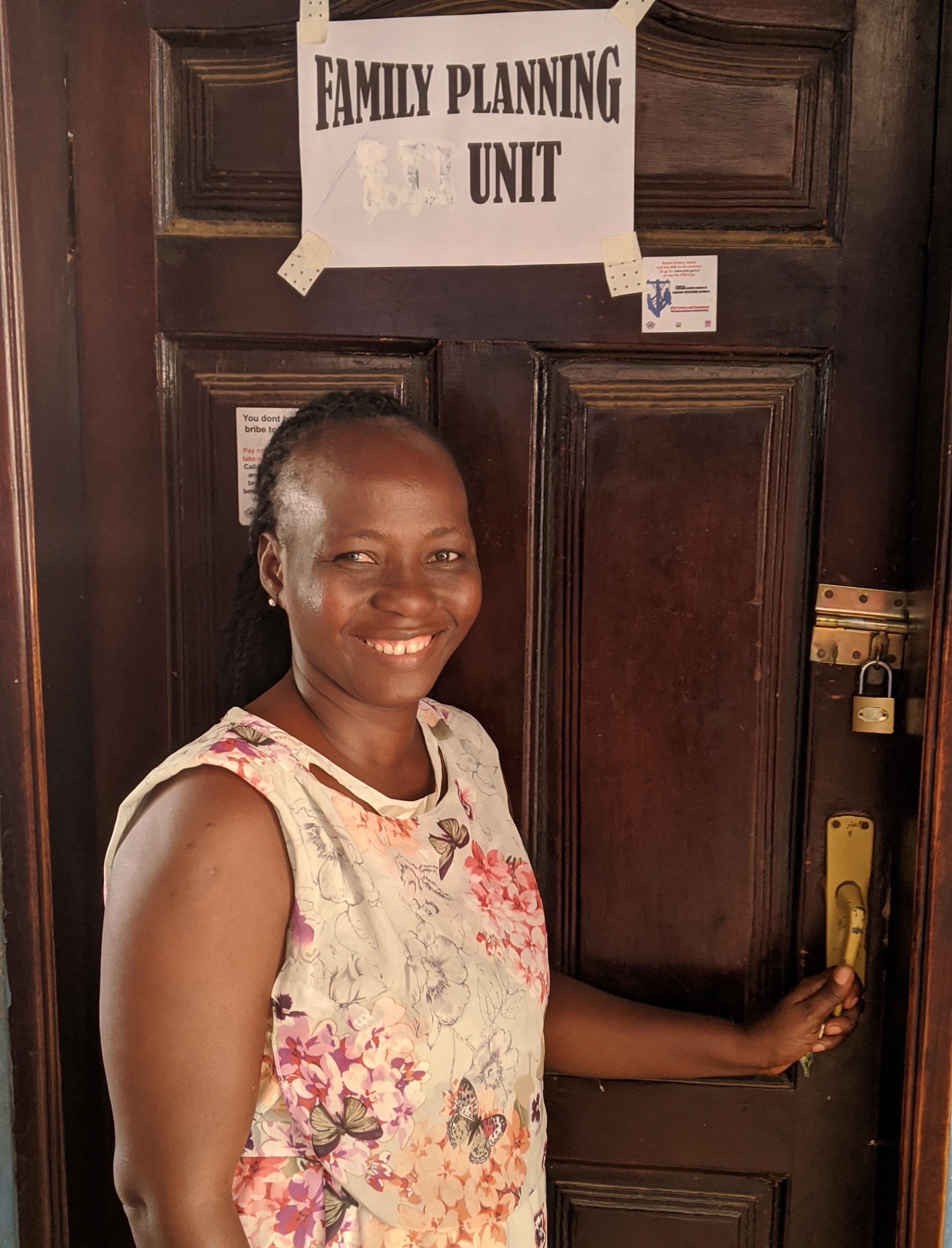By Nki Nafisa Jones
FREETOWN, Sierra Leone - Lack of access to family planning services contributes to Sierra Leone’s high rates of unplanned pregnancies, which may have an impact on the country’s high maternal mortality rate (1,360 out of 100,000 women).
It is estimated that 25 percent of all women in Sierra Leone, and up to 30.7 percent of adolescents aged 15-19 years, are unable to access adequate family planning services upon demand, and over 20 percent of healthcare facilities experience stock outs of at least three major contraceptives. The contraceptive prevalence rate is currently at 16.6 percent.
The Firefly App led by UNFPA in Sierra Leone, in partnership with the Ministry of Health and Sanitation and UNICEF, and funded by UNFPA headquarters, began in May 2019 as an approach towards addressing the unmet need for family planning in the country.
The Firefly App aims to reduce stock outs of family planning commodities at health facilities serving large communities through a mobile application that facilitates consistent, accurate and timely data reporting for health workers. Firefly will improve capacity for reporting and reduce workloads through a digital assistant that guides workers with data collation; automates inventory calculations; and speeds up reporting. It will also provide the data required to estimate resupplies and prevent stock outs.
In Sierra Leone, the existing data collection system is almost entirely paper-based, with each health facility using a daily dispensary form, stock cards and up to ten patient registers. Each patient register serves a different department of a clinic, with several registers having a number of sub-registers included.
Piloting the Firefly App in Sierra Leone’s health system
The Firefly team developed a working prototype of the Firefly application and pilot testing is ongoing at six community health centres in the Western Urban (which covers the capital, Freetown) and the Western Rural districts in Sierra Leone. We spoke to senior staff members in three facilities who were trained in the use of the App and each provided with tablets to recount their own stories of the contexts within which Firefly is operating.
Yealie's story
Yealie Kamara is a midwife at the Waterloo community health clinic, situated in a town just outside the capital, Freetown. She has been working at the clinic for a year and a half and covers the clinic’s reproductive health services, such as ante-natal care, labour and delivery and family planning.
The clinic receives approximately 200 patients a week and around five to six patients come in for family planning services. There are 72 salaried staff, with five staff members attending to the family planning department.
Prior to using the Firefly App, family planning stock was replenished on a monthly basis regardless of the clinic’s actual rate of usage, thus resulting in stock-outs of essential supplies. Yealie explained the detrimental effect of stock-outs on the demand for the clinic’s family planning services: “The community only recently began to accept family planning after we promoted the benefits of preventing unwanted pregnancy and spacing children to them. Now, most of the demand for our services comes from young women”, explained Yealie. “Before, we used to have stock-outs for up to two to three months and young people used to be discouraged from coming after trying three or four times. Because it is an urgent issue, they would often go on to have unprotected sex and then have unwanted pregnancies,” she added.
With the data supplied from the app, stock is now re-supplied on a by-need basis. Yealie expressed her satisfaction with how the Firefly App had simplified the clinic’s information management for family planning. She noted that while using the paper-based system, she would feel compelled to recount the entries on stock usage in order to ensure accuracy. However, Firefly’s digital daily reporting system made information management simpler for her as entering the day’s data into Firefly’s form took under five minutes to complete.
Yealie had some pertinent feedback for how the Firefly App’s positive impact on the clinic’s information management and service delivery could be extended. She explained that the centre’s family planning department gives its patients paper slips with a patient number, date of visit and next appointment date written down. However, patients would often lose or damage their slips, resulting in them missing their allocated appointments or, during subsequent visits, in clinic staff struggling to locate the patients’ details in the Register.
Next steps for Firefly
For the Firefly pilot to be expanded beyond the six facilities in 2020, all outstanding improvements will need to be completed, alongside additional human and technical resources. The Firefly prototype is a web application and can only be accessed online. Due to the high costs of data and poor service coverage in many parts of the country, it is important to ensure that the app is also operational offline. Additionally, to minimize human errors, the Firefly App may need to collect data at the patient level. This will involve digitizing the family planning register, along with others. Paper forms and separate registers and inventory cards are currently being used for all other commodities, so it is necessary for service providers to use both the paper systems and the Firefly App. For long term sustainability, engagement with key stakeholders to envision and design a solution that helps create a data-driven, efficient, and integrated supply chain system will likely be necessary to eliminate all paper-based reporting and achieve the goal of zero stock-outs.
***
For more information, please contact:
Angelique Reid, UNFPA Sierra Leone, Communications Specialist
Tel: +232 78340044 - Email: areid@unfpa.org



